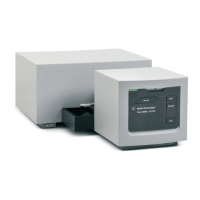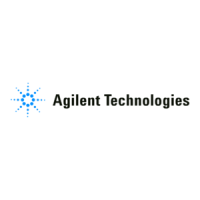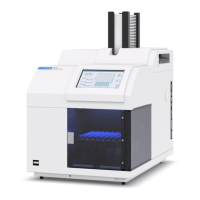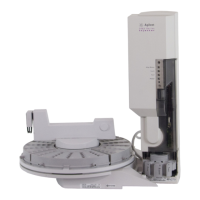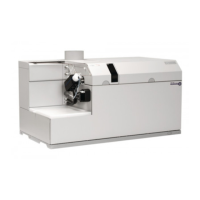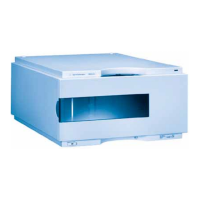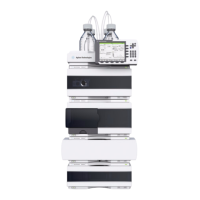48 Agilent 8453 UV-visible Spectroscopy System Operator’s Manual
3 Good Measurement Practices
General Considerations
When using volatile solvents such as acetone or methylene chloride, make sure
that the sample cell is stoppered. Evaporation of a solvent does change the
solute concentration and can cause solution noise due to solute convection
currents. Both of these will affect the accuracy of your measurements. We also
recommend stirring and temperature control when you use volatile solvents.
When using water as solvent we recommend using UV grade or HPLC grade
water to reduce unwanted absorbance from impurities in the water. If you are
using the sipper/sampler system the water should be degassed to avoid bubble
formation in the flow cell, especially if the water comes from a pressurized
water supply.
Sample Preparation
The sample cell should be rinsed three to five times with your intended solvent
before you fill it with the pure solvent that will be used in the measurement.
Turning the cell upside down on a small stack of absorbent tissues will help
remove any residual solvent. This treatment will minimize contamination from
previous experiments.
Samples which contain colloidal dispersions, dust or other particulate matter
should be filtered, centrifuged or allowed to settle. If not, the overall
attenuation-of-transmittance spectrum due to light scattering and/or
reflection will hide the spectral information from the analyte.
WARNING
Many of the solvents in Tab le 1 are hazardous. Be sure you fully understand their
properties before using them.

